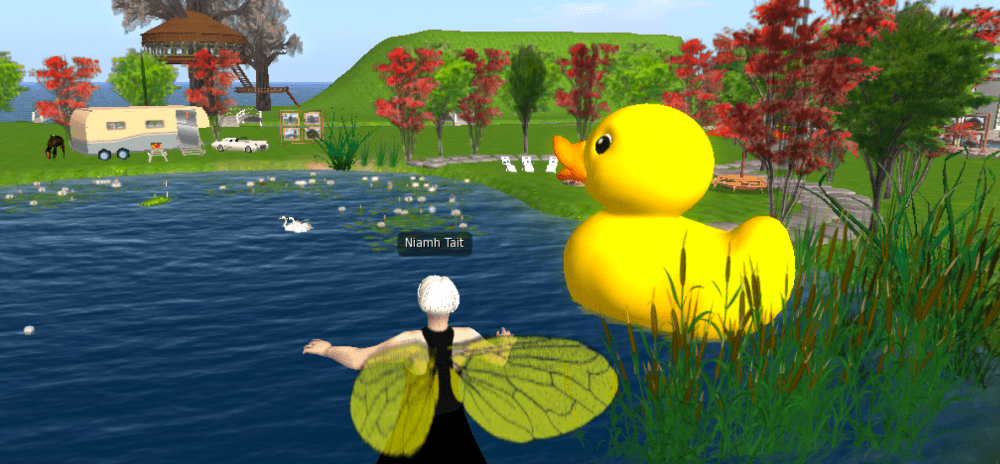The VESFA study is a feasibility randomised control trial investigating a new online therapy for aphasia. Virtual worlds provide the opportunity to situate therapy in an ecologically valid setting. This therapy delivered a word finding treatment (elaborated semantic feature analysis, ESFA) with conversation groups in the virtual world, EVA Park.
34 people with aphasia took part in the study. They were randomly allocated to either the VESFA treatment group (17 people) or the usual care control group (17 people). The VESFA therapy consisted of four sessions (two individual ESFA and two conversation groups) a week for 8 weeks.
The primary objectives of the feasibility trial were to evaluate:
- the feasibility of recruitment and retention
- the acceptability of research procedures
- the acceptability of the intervention to participants
- the feasibility of delivering the assessment and intervention remotely
The secondary objectives were to:
- evaluate the of outcome measures
- estimate parameters for a sample size for the definitive trial
- evaluate treatment fidelity
Clinical outcomes will provide preliminary evidence of the potential of the intervention to be effective in terms of:
- naming treated words (study specific test)
- naming words in general (the Boston Naming Test)
- functional communication (the Scenario Test, UK)
- retrieving words within discourse (Nicholas & Brookshire discourse analysis protocol)
- reducing emotional distress (GHQ-12)
- improving health related quality of life (SAQOL-39g)
- improving aphasia language profile (Western Aphasia Battery, Aphasia Quotient)
The trial ran from November 2020 to February 2022. Results will be updated soon.
Data Protection Information:
Explaining the technology:
If you have any questions please contact Niamh: niamh.devane.1@city.ac.uk
